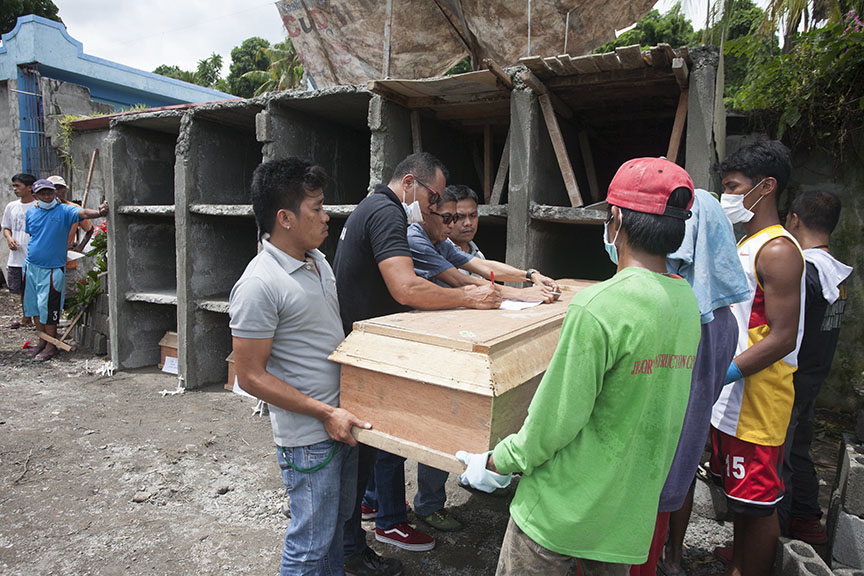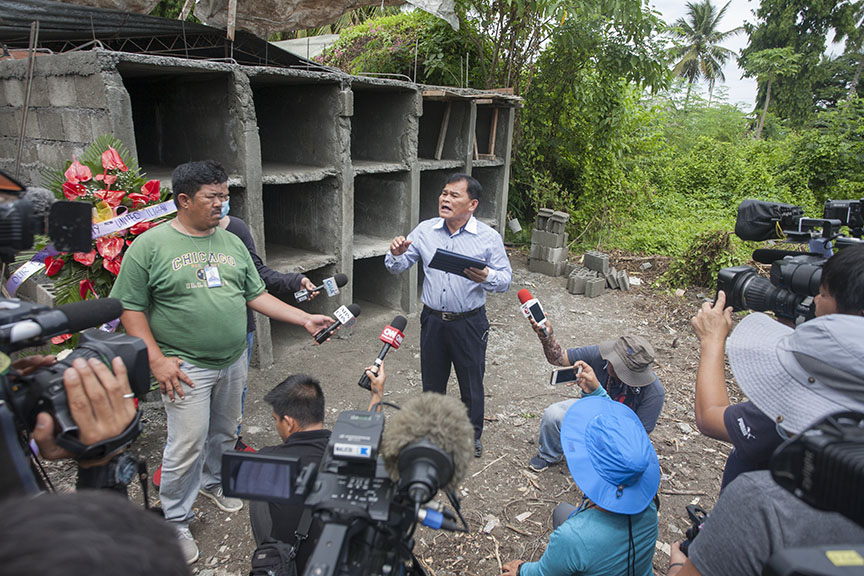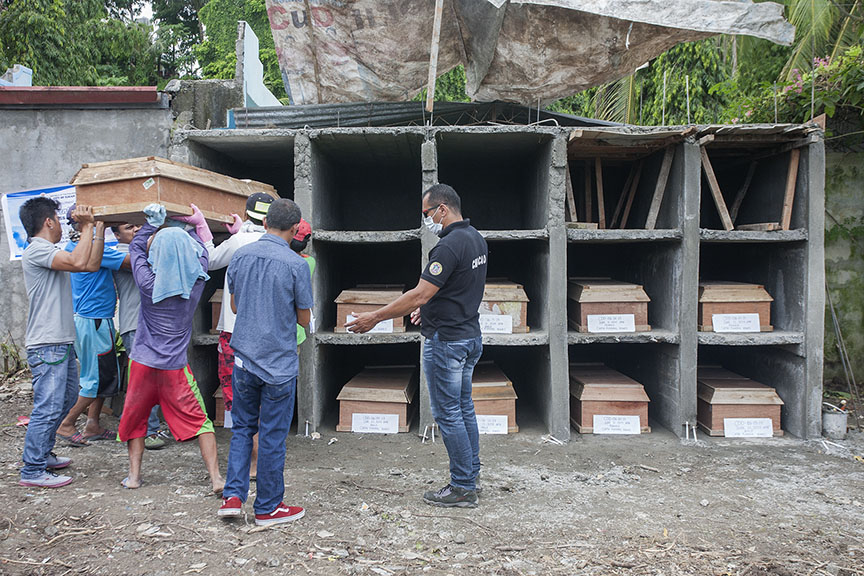 Burying the nameless victims of the Marawi siege. MindaNews photo by Bobby Timonera
Burying the nameless victims of the Marawi siege. MindaNews photo by Bobby Timonera
ILIGAN CITY (MindaNews / 15 June) – It was eerily quiet for a burial at a public cemetery not far from the sea. There were no weeping or wailing from relatives as the coffins made of plywood were placed inside the freshly cemented apartment-type tombs. One could only hear the chatter of people in normal tones.
It was a mass burial at the cemetery in Barangay Dalipuga for the 11 still unidentified victims of the raging war in neighboring Marawi City.
There were a number of people who came, maybe 50, but they were mostly city government employees, cemetery workers, and members of the media with their big cameras and tripods. A drone camera was hovering above.
The nameless victims – seven men, three women, and a girl – were each contained in coffins made of plywood without paint, brought to the cemetery from the Capin Funeral Homes on a mini dump truck, the caskets placed on top of each other.
Conspicuously absent during the 13-kilometer trip from the funeral home to the cemetery along Iligan’s highway was the long convoy of vehicles that would have ferried relatives and friends.
The unidentified victims were interred in a burial site that looks like giant pigeonholes, five square holes about one meter wide in each of the three levels.
There were still four vacant tombs at the topmost level.
Joe Pantoja, the city government’s information officer, said they could add more tombs if, heaven forbid, there would be more victims. The city government spent for the coffins and the tombs.
 A pastor says a prayer for the dead, not for the benefit of the relatives, but more for the media. MindaNews photo by Bobby Timonera
A pastor says a prayer for the dead, not for the benefit of the relatives, but more for the media. MindaNews photo by Bobby Timonera
Pantoja said they did not even know if the victims were Christians or Muslims. All the city government could do was to afford the victims a decent burial as practiced in this predominantly Christian city.
There was the usual singing of hymns by city government employees, particularly those working for the Economic Enterprise and Development Management Office, which was tasked to do the job.
A pastor delivered a sermon before the tombs were finally sealed.
Pantoja said the bodies were buried separately so that should relatives come looking, it would be easier to identify.
Out of the 20 bodies brought to Capin Funeral Homes from Marawi between May 27 and June 9, only nine have been claimed by relatives.
The remaining 11, said funeral director Danilo Capin, were beyond recognition as they already were in an advanced stage of decomposition.
But a team from the Philippine National Police’s Crime Laboratory composed of members of the Scene of the Crime Operatives (SOCO) and the Disaster Victims Identification (DVI) had come on Sunday, June 11, for post-mortem examination, including taking tissue samples for DNA test, photos and tagging the cadavers.
Capin said throngs of people have already visited the funeral parlor since May 27 looking for their loved ones. (Bobby Timonera / MindaNews)
 Cemetery workers place the last of the 11 coffins into the tomb. MindaNews photo by BOBBY TIMONERA
Cemetery workers place the last of the 11 coffins into the tomb. MindaNews photo by BOBBY TIMONERA
READ ALSO: Slain civilians brought to Iligan from Marawi: 9 of 20 claimed
